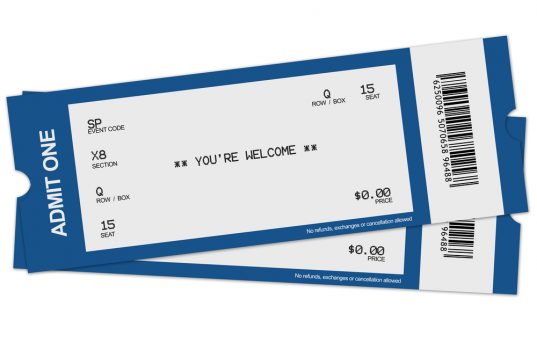The Supreme Court of New Jersey ruled in Josh Finkelman v. National Football League (NJ, 2019) that the National Football League (NFL) did not run afoul of the New Jersey Ticket Law when distributing tickets to the 2014 Super Bowl. According to the unanimous court,

New Jersey Ticket Resale Law
At the time of the suit, N.J.S.A. 56:8-35.1 regulated ticket sales to sports and entertainment events. Section 35.1 provides:
It shall be an unlawful practice for a person, who has access to tickets to an event prior to the tickets’ release for sale to the general public, to withhold those tickets from sale to the general public in an amount exceeding 5% of all available seating for the event.
While the consumer protection law was in force when the Super Bowl was held in New Jersey on February 2, 2014, the New Jersey Legislature subsequently repealed it, effective February 1, 2019.
Facts of Josh Finkelman v. National Football League
The NFL, following its established practice for Super Bowl games, sold one percent of the tickets to the 2014 Super Bowl to members of the public who had won the right to purchase those tickets in an NFL-sponsored lottery. The NFL gave the remaining ninety-nine percent of the tickets to teams, broadcast networks, corporate sponsors, and other individuals and entities.
Plaintiff Josh Finkelman filed a federal lawsuit alleging that the NFL’s allocation of the 2014 Super Bowl tickets constituted “withhold[ing]” of an excessive percentage of those tickets contrary to section 35.1. In his individual capacity and as the representative of a proposed class of individuals who either bought 2014 Super Bowl tickets at premium prices on the secondary market or could not afford to do so, Finkelman seeks various remedies including treble damages under the Consumer Fraud Act (CFA). The United States District Court for the District of New Jersey dismissed the action, and the plaintiff appealed.
The Third Circuit asked the New Jersey Supreme Court to clarify section 35.1. It accepted and reformulated the certified question as follows:
1) Is the term “person[] who has access to tickets to an event prior to the tickets’ release for sale to the general public,” as that term is used in [section 35.1], limited to ticket brokers and resellers?
2) Are tickets to an event that are sold to winners of a lottery “release[d] for sale to the general public” within the meaning of [section 35.1], and, if so, are tickets distributed to selected entities “[withheld] . . . from sale to the general public” within the meaning of [section 35.1]?
NJ Supreme Court’s Decision in Josh Finkelman v. National Football League
In response to the first question, the New Jersey Supreme Court construed the term “person” in section 35.1 to include not only ticket brokers and resellers, but also other individuals and entities with “access to tickets to an event prior to the tickets’ release for sale to the general public.” N.J.S.A. 56:8-35.1.
Accordingly, the court determined that the sale of tickets to winners of the NFL’s ticket lottery to constitute a “release for sale to the general public” within the meaning of section 35.1.
As for the second question, the court concluded that the Super Bowl tickets sold to lottery winners were the only 2014 Super Bowl tickets designated by the NFL for “release for sale to the general public” within the meaning of section 35.1.
“The tickets at the heart of plaintiff’s action were part of the ninety-nine percent of tickets reserved long before the 2014 Super Bowl for specific entities with ties to the NFL,” Justice Anne Patterson wrote. “Those tickets were never destined to be part of a public sale.”
In reaching its decision, the court rejected the plaintiff’s argument that the Legislature enacted section 35.1 to ensure that ninety-five percent of all seats for an event would be available to the general public for purchase.
“The Legislature sought to impose a more modest constraint on the sale of tickets to sports and entertainment events,” Justice Patterson wrote. “We do not consider the NFL’s distribution of other tickets to the 2014 Super Bowl to its teams, other selected individuals, and entities to constitute the unlawful withholding.”
